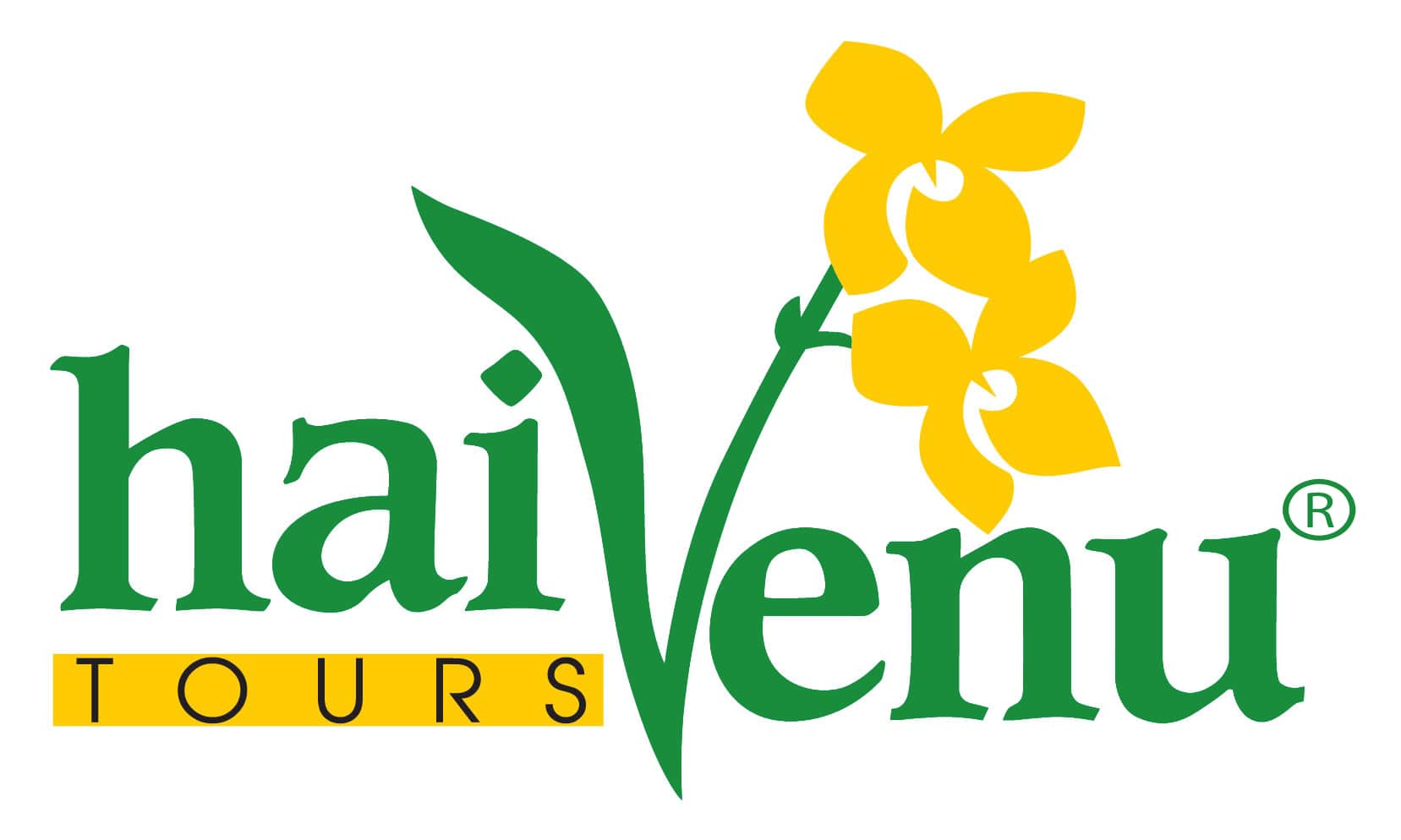Gifts and Gratuities in Vietnam
Last Updated on 9 May, 2024 by admin
This guide aims to assist travelers in understanding the cultural nuances and etiquette surrounding gifts and gratuities in Vietnam. Gift-giving and tipping are common practices worldwide, but they carry unique connotations and expectations in different cultures. For visitors to Vietnam, recognizing these practices can greatly enhance the travel experience, fostering goodwill and deeper connections with the local population.
Cultural sensitivity is crucial when visiting foreign countries, particularly in places like Vietnam, where traditions and customs play a significant role in daily life. Being aware of and respecting these customs not only shows respect for the local culture but also helps avoid misunderstandings and negative interactions. This guide serves as a resource for travelers to navigate these cultural landscapes thoughtfully and respectfully, ensuring their actions contribute positively to the communities they visit.
Concerns About Gift-Giving
Challenges with Personal Gifts
While the intention behind giving gifts, especially to children, is often benevolent, such actions can inadvertently lead to social and ethical dilemmas. One significant issue is the potential to attract large crowds, which can create chaotic situations and disappointment when gifts run out. This scenario can leave visitors overwhelmed and children upset, which is far from the original intent of spreading joy and kindness.
Cultural Perspective on Gifts
Gift-giving, particularly from foreigners to local children, can sometimes be perceived as patronizing or an act of pity. This perception stems from a complex history of foreign interaction and aid in Vietnam, where well-intentioned gifts can be seen as affirming a hierarchical relationship between the giver and the receiver. Such actions, even when well-intentioned, might reinforce negative stereotypes or create expectations that every foreign visitor will provide similar handouts.
Potential for Dependency
Repeated instances of gift-giving can lead to a dependency culture where individuals, especially children, might grow accustomed to receiving handouts instead of engaging in more sustainable forms of economic activity. This can affect local norms and economic behaviors, diverting them from self-sufficiency and towards reliance on tourist generosity.
Alternatives to Direct Gift-Giving
Recognizing the pitfalls of direct gift-giving, it is advisable for travelers to consider alternatives that offer longer-lasting benefits without the associated negative impacts. Contributions to community-based projects or educational resources not only provide more substantial support but do so in a manner that respects the dignity and independence of the recipients.
Recommended Gift Practices
Supporting Community Needs
Instead of personal gifts, which can lead to the issues previously discussed, contributing to broader community needs is a more sustainable and impactful way of giving. This approach ensures that gifts benefit a wider group and contribute to long-term improvements in the community’s quality of life.
How to Contribute Effectively
Identifying Genuine Needs
It’s crucial to identify what the community truly needs to ensure that contributions are useful and desired. This can be done by communicating with community leaders or through organizations that have ongoing relationships with the communities.
Examples of Useful Contributions
- Educational Supplies: Donating items such as textbooks, computers, sports equipment, or art supplies to schools can significantly impact students’ learning experiences.
- Health and Hygiene: Contributions towards health kits, including basic medications, bandages, soap, and toothbrushes, can improve community health standards.
- Community Infrastructure: Funding small-scale infrastructure projects, like repairing a local clinic, installing a clean water system, or improving community centers, can benefit entire villages.
Managing Donations
Haivenu’s Role in Facilitating Donations
Haivenu plays a critical role in ensuring that the contributions made by travelers are both meaningful and appropriate for the local context. By acting as an intermediary, Haivenu helps to bridge the gap between the intentions of the travelers and the actual needs of the communities.
Coordination with Local Entities
Haivenu collaborates directly with local schools, healthcare facilities, and community leaders to assess and verify needs before any action is taken. This proactive approach prevents redundancy, ensures resources are not wasted, and that contributions make a real difference.
Process of Making a Donation
- Consultation: Haivenu discusses potential donation opportunities with travelers, providing options based on the current needs identified by local contacts.
- Logistics Management: Once a donation plan is agreed upon, Haivenu handles all the logistics, from purchasing supplies locally (thus supporting the local economy) to arranging for the delivery and proper distribution of the donations.
- Transparency and Accountability: Haivenu provides documentation and feedback to donors, including receipts, photos, and stories about the impact of their contribution.
Feedback and Follow-Up
Haivenu understands that donors often wish to see the effects of their generosity. Therefore, they provide updates and feedback about how the donated resources have been used and the benefits they have brought to the community. For those unable to attend the donation event, Haivenu ensures that detailed reports and visuals are shared to make the experience as rewarding and transparent as possible.
Understanding Tipping in Vietnam
General Tipping Practices
While tipping is not as entrenched in Vietnam as it is in some Western cultures, recognizing good service with a gratuity is becoming more common, especially in tourist-centric areas. Understanding when and how much to tip can enhance the mutual respect between guests and service providers.
Service-Specific Advice
- Restaurants and Cafes: Tipping is appreciated but not expected. A tip of 5-10% in upscale restaurants can be a generous gesture if the service was exceptional. In local eateries, leaving the change or rounding up the bill is often sufficient.
- Hotels: For bellboys or porters, a tip of around 20,000-50,000 VND (approximately 1-2 USD) is customary for helping with luggage. For housekeeping, a similar amount per day can be left in the room at the end of your stay.
- Spas and Salons: If you’re pleased with the service, a tip of 10-15% is standard, reflecting the personal care and attention provided.
Regional Differences
The cultural influence of past interactions, particularly in Southern Vietnam, has led to expectations of tipping similar to Western practices. In contrast, the North may adhere more strictly to traditional Vietnamese customs where tipping is less common.
Tipping for Special Services
Guides and Drivers
- Tour Guides: Depending on the length of the tour and the quality of the service, tipping tour guides around $5-10 per day per client is considered appropriate. For exceptional service or particularly informative and engaging guides, a higher tip can be given to show appreciation.
- Drivers: For private drivers, a tip of $2-5 per day can be given, especially if the driver has been helpful, punctual, and courteous throughout the trip.
Hotel Staff and Other Service Providers
- Extended Stays: If you’re staying at a hotel for several days, consider tipping staff who have provided consistent service throughout your stay. This could include the concierge, cleaning staff, or any other employees who have gone above and beyond to make your stay enjoyable.
- Personalized Services: For services that require extra care, such as a concierge arranging tours or special activities, a gratuity reflecting your appreciation for their efforts can make a significant difference and is warmly received.
How to Tip Appropriately
- Discretion in Tipping: Always aim to tip discreetly and directly to the person who provided you the service. This ensures that the tip is received as a personal gesture of thanks.
- Currency: Tips should ideally be given in local currency to avoid any inconvenience to the service provider, ensuring they don’t have to go through additional steps to exchange foreign currency.
Making Small Donations at Religious Sites
Visiting religious sites in Vietnam is not only a touristic activity but also an opportunity to engage with the country’s rich spiritual heritage. Showing respect through small donations is customary and supports the upkeep of these sacred places.
How to Donate
- Appropriate Amounts: Donations need not be large to be meaningful. A typical donation could range from 10,000 to 50,000 VND, depending on the visitor’s ability and the context of the visit. This modest contribution assists in the maintenance and operation of the temples.
- Proper Etiquette: Donations should be made respectfully. Many temples have donation boxes placed at the entrance or near the main altar. It is advisable to place the money discreetly into these boxes. In some cases, you might want to hand your donation directly to a temple attendant or monk, especially if you are participating in a special blessing or ritual.
- Recognition of Donations: In many Vietnamese religious practices, a donation is acknowledged by the sounding of a gong or a verbal blessing from a monk. This act is seen as a way to spread the merit of the donation to the giver, providing spiritual benefits as well as physical support to the temple.
Conclusion
This guide has explored the nuances of gifts, gratuities, and donations within Vietnam, highlighting culturally appropriate practices that respect local customs and contribute positively to the communities. Key takeaways include:
- Thoughtful Giving: Avoid direct gift-giving to individuals, especially children, to prevent dependency and social issues. Instead, contribute to community initiatives or educational resources that offer long-term benefits.
- Tipping Practices: Tipping is appreciated but not mandatory across Vietnam, with variations between the North and South due to historical influences. Guidelines provided here help navigate when and how much to tip in various service contexts.
- Donations at Religious Sites: Small financial contributions at religious sites are a mark of respect and support for the spiritual and communal functions of these places.
Travelers are encouraged to engage with the local Vietnamese culture with sensitivity and respect. By understanding and adhering to the recommended practices for gifts, gratuities, and donations, visitors can ensure their interactions are both respectful and enriching. This approach not only enhances the visitor’s experience but also supports sustainable tourism practices that honor the traditions and needs of the local communities.
As you travel through Vietnam, keep these guidelines in mind to foster positive interactions and meaningful exchanges. Whether you are navigating the bustling markets, serene temples, or the scenic countryside, a mindful and informed approach to gifts and gratuities will enrich your travels and leave a positive impact on the places and people you encounter.




